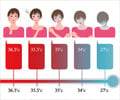An $11.5 million multicenter clinical trial is investigating the effectiveness of induced hypothermia as a therapy for brain swelling in children.
An $11.5 million multicenter clinical trial is investigating the effectiveness of induced hypothermia as a therapy for brain swelling in children who have suffered severe traumatic brain injuries and the UT Southwestern Center has been chosen as one of the participants in the experiment.
The 12 centers that are participating in the trial are expected to enroll a total of 340 children up to age 16 in the five-year trial, which is being funded by the National Institute of Neurological Disorders and Stroke, a component of the National Institutes of Health. Children’s Medical Center Dallas, which has a Level I pediatric trauma center, will serve as the local coordinating site. The study is being led by Children’s Hospital of Pittsburgh.Pediatric patients who are eligible for the trial must have severe brain injury caused by blunt trauma. This excludes patients who have suffered injuries that penetrate the skull such as gunshot wounds.
Those patients selected to receive hypothermia therapy will be cooled to between 32 and 33 degrees Celsius (89 to 90 degrees Fahrenheit), using special cooling blankets and/or cooled saline given intravenously. In addition to normal emergency care, they will remain cooled for 48 hours while being closely monitored in the intensive care unit. Children will be tracked by researchers for one year to record outcomes, with a battery of tests being conducted at six and 12 months following the injury.
“Trauma is the leading cause of death and disability in children, more than all other causes combined,” said Dr. Pam Okada, associate professor of pediatrics at UT Southwestern and lead investigator of the Dallas trial. “Previous studies have shown hypothermia is not only safe in children following severe traumatic brain injury, but may improve their chance of survival.”
It had been thought that children had better outcomes than adults following traumatic brain injury, Dr. Okada said. In fact, it has been demonstrated that younger children (those younger than 4) actually have worse outcomes. Problems that develop with motor, behavior, learning, memory and other higher-level functions are common even in children with only “moderate” or “mild” concussions or injuries, she said.
“In head injuries where the skull remains intact there is little room for swelling,” Dr. Okada said. “This causes diminished blood flow resulting in brain damage. Cooling the body may reduce the swelling and possibly prevent continuing damage. If this therapy proves effective, it would be a major breakthrough in the treatment of traumatic brain injuries.”
Advertisement
For this reason, researchers are notifying the public that informed consent will be waived. Every attempt to contact family members to provide notification and obtain consent for continued participation will be made as soon as possible after enrollment.
Advertisement
GAN/C







